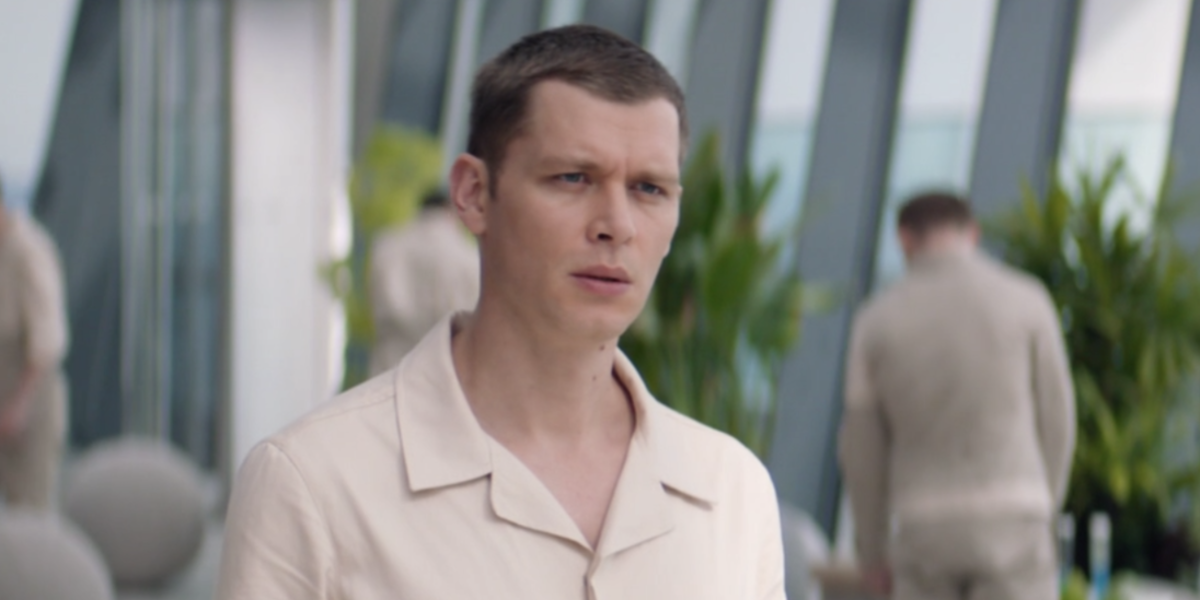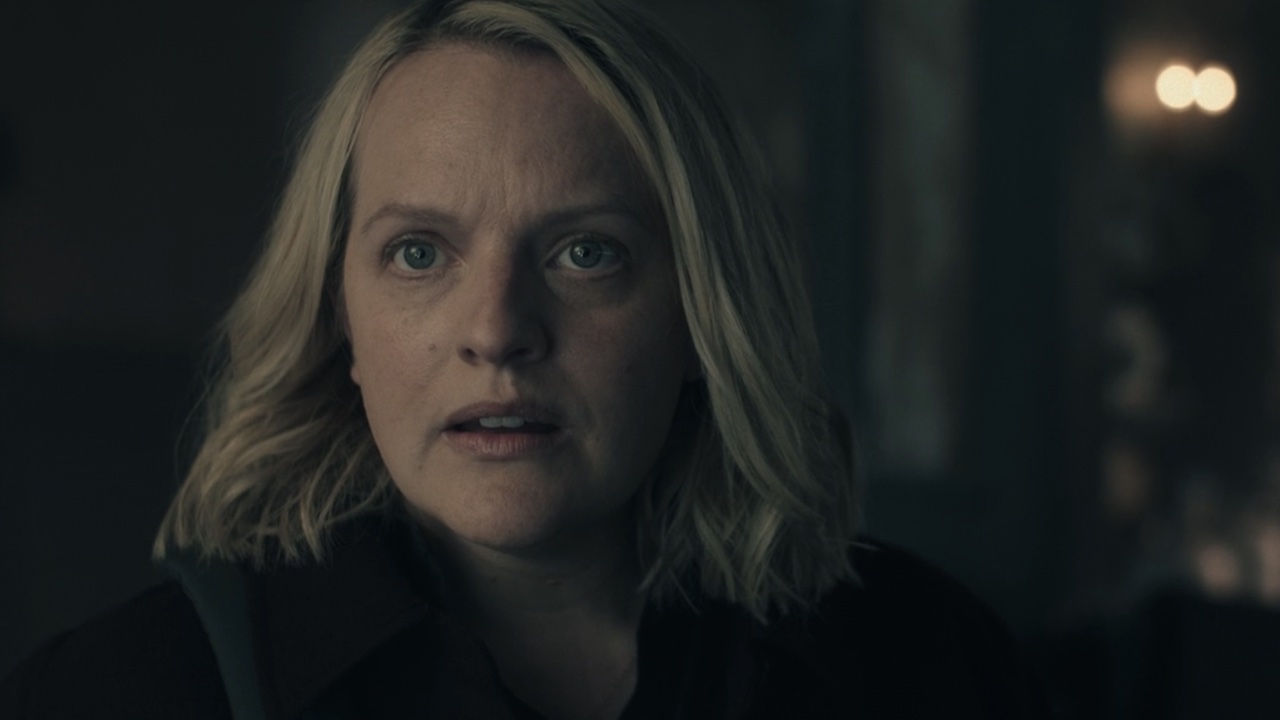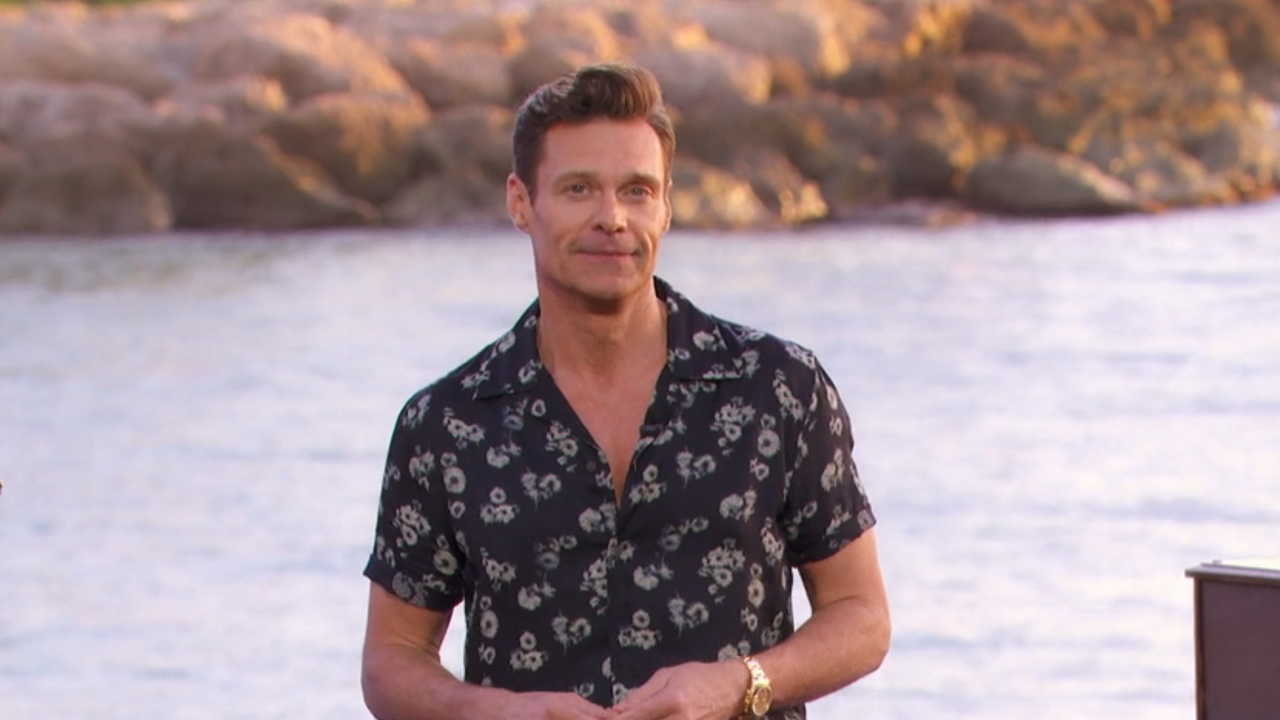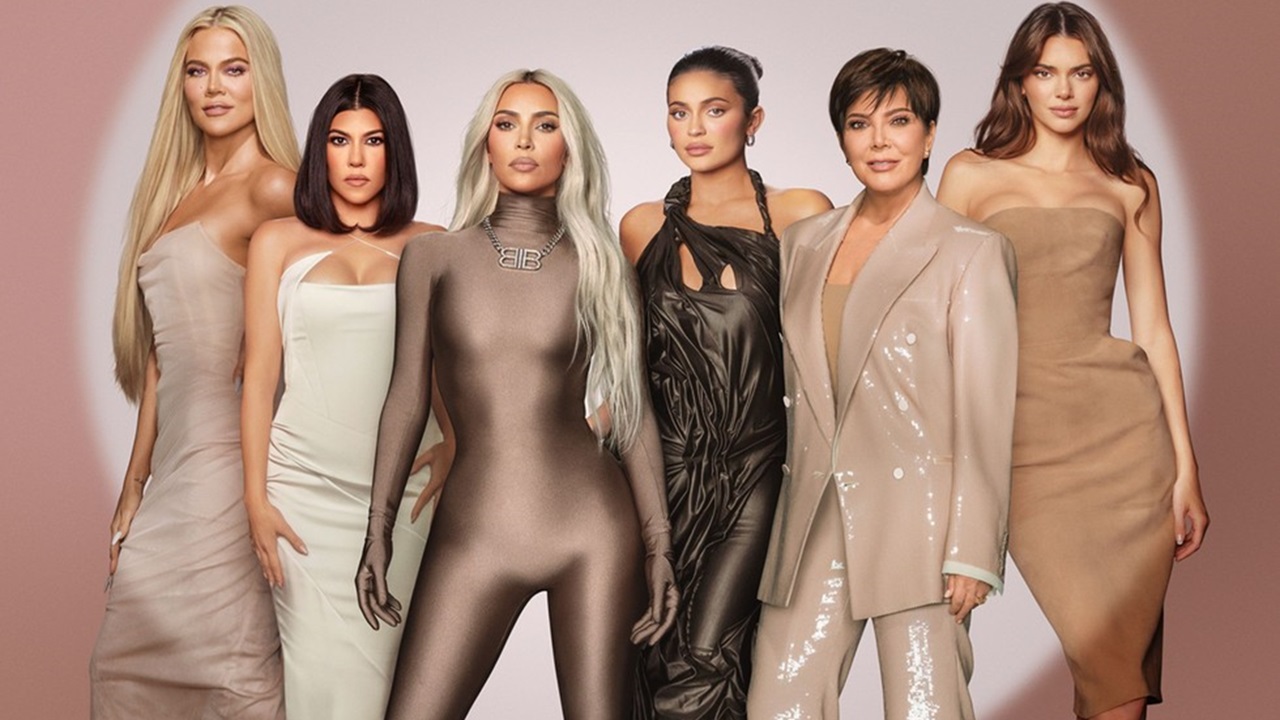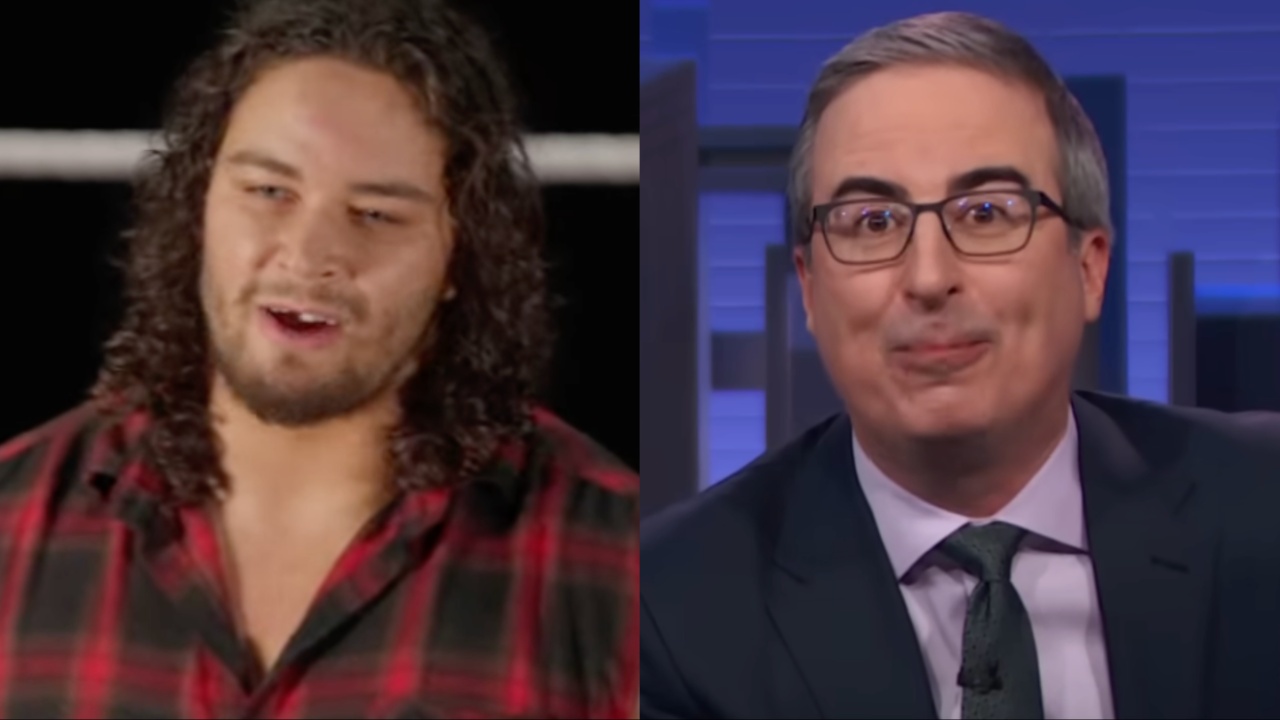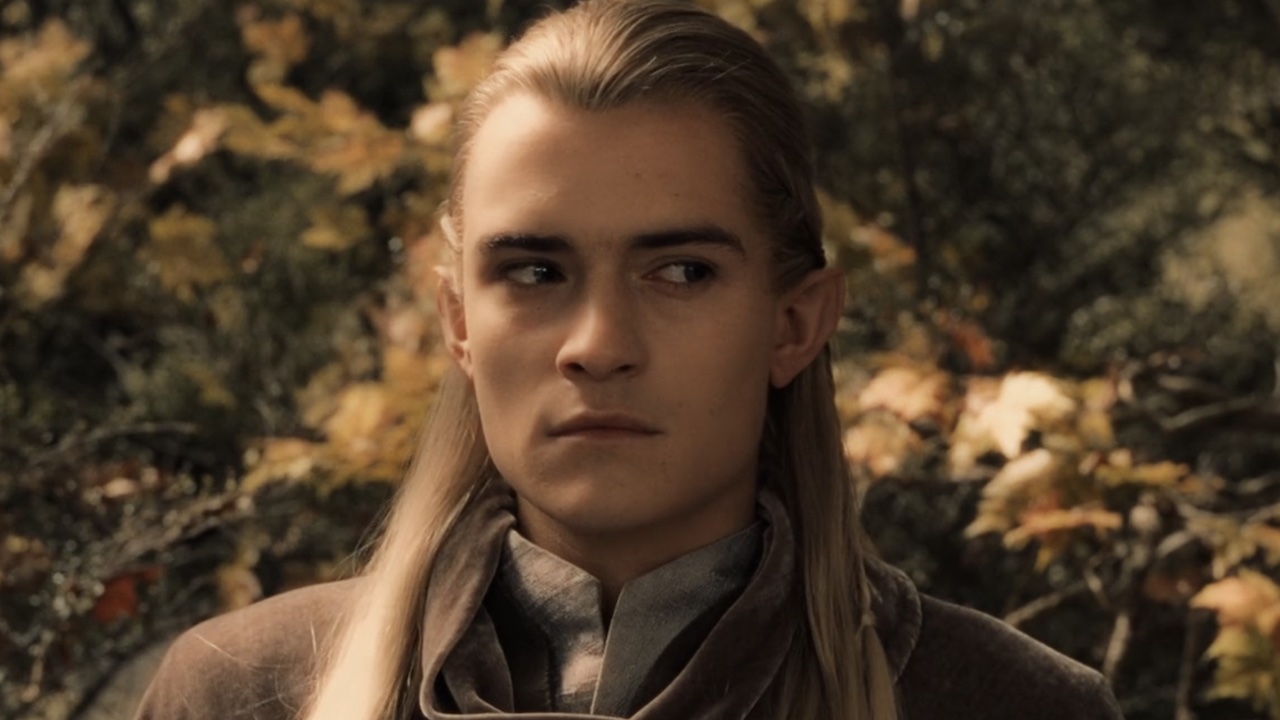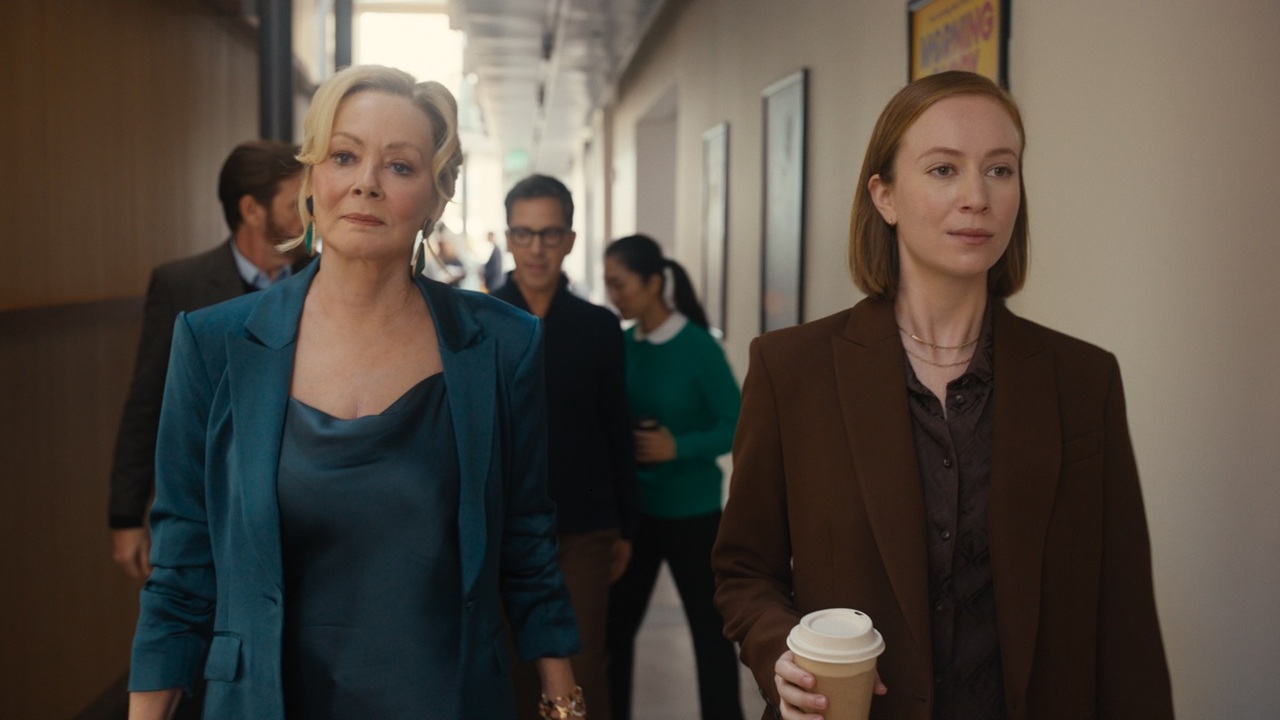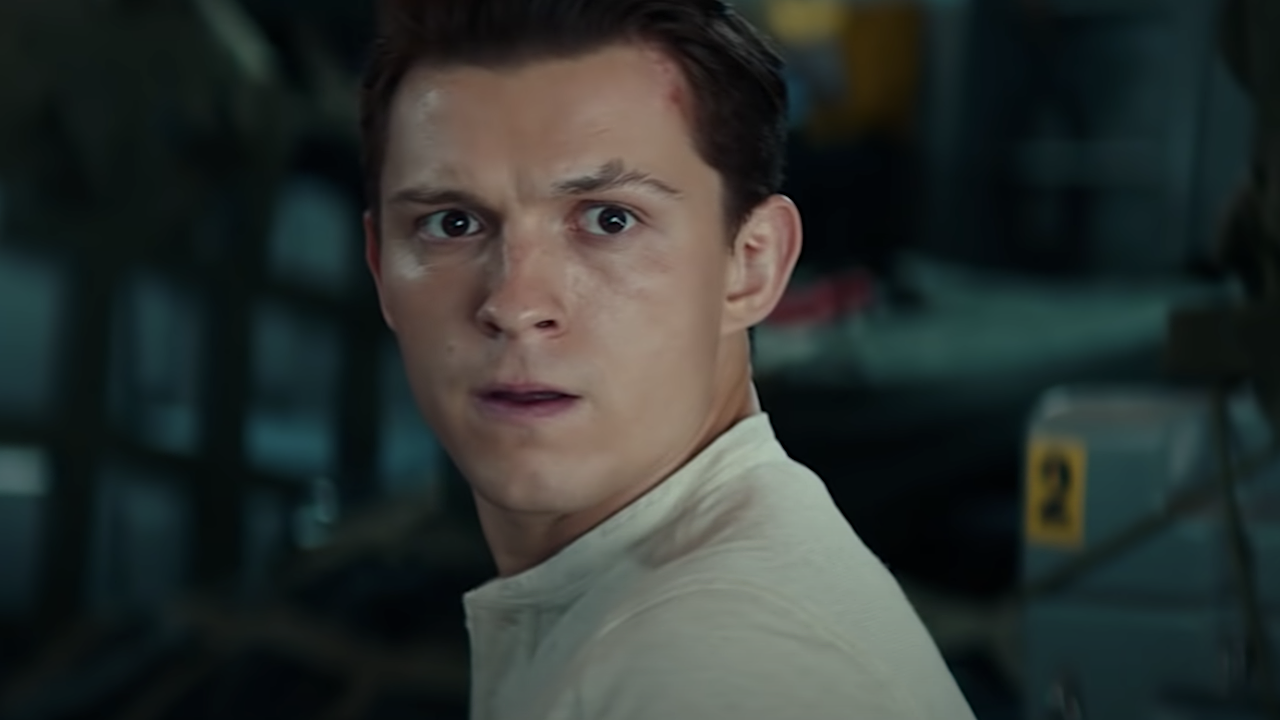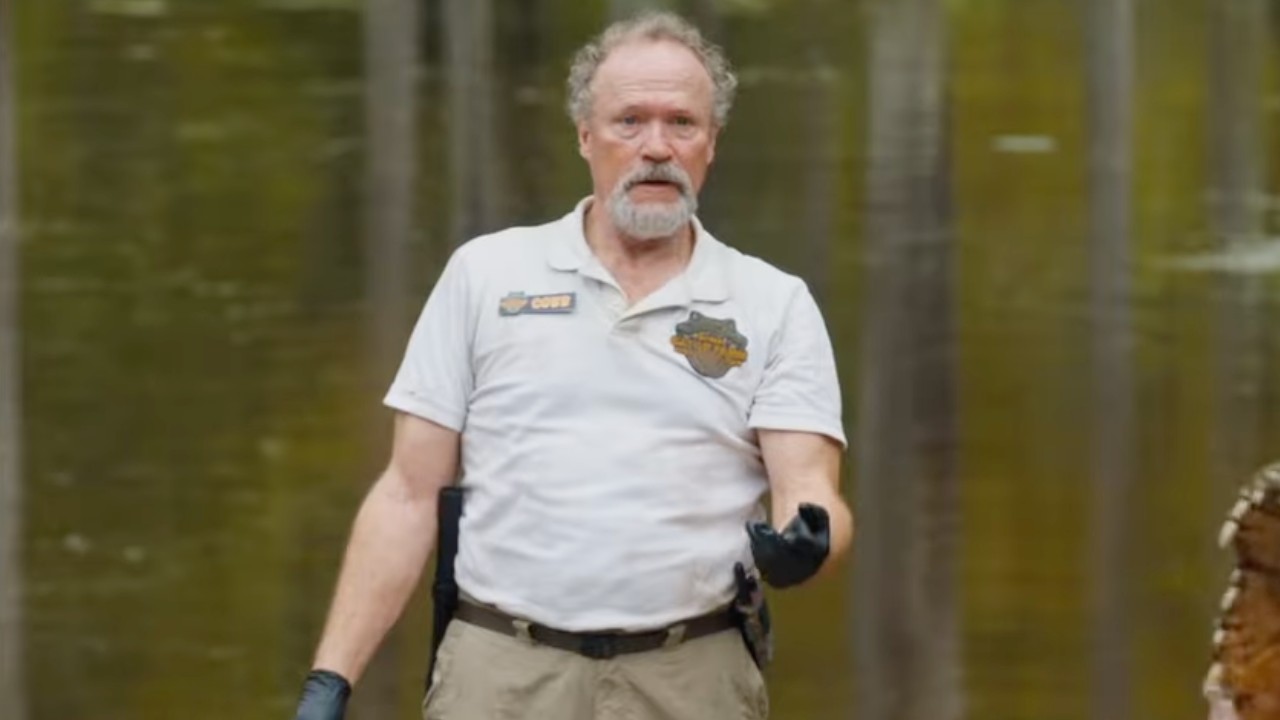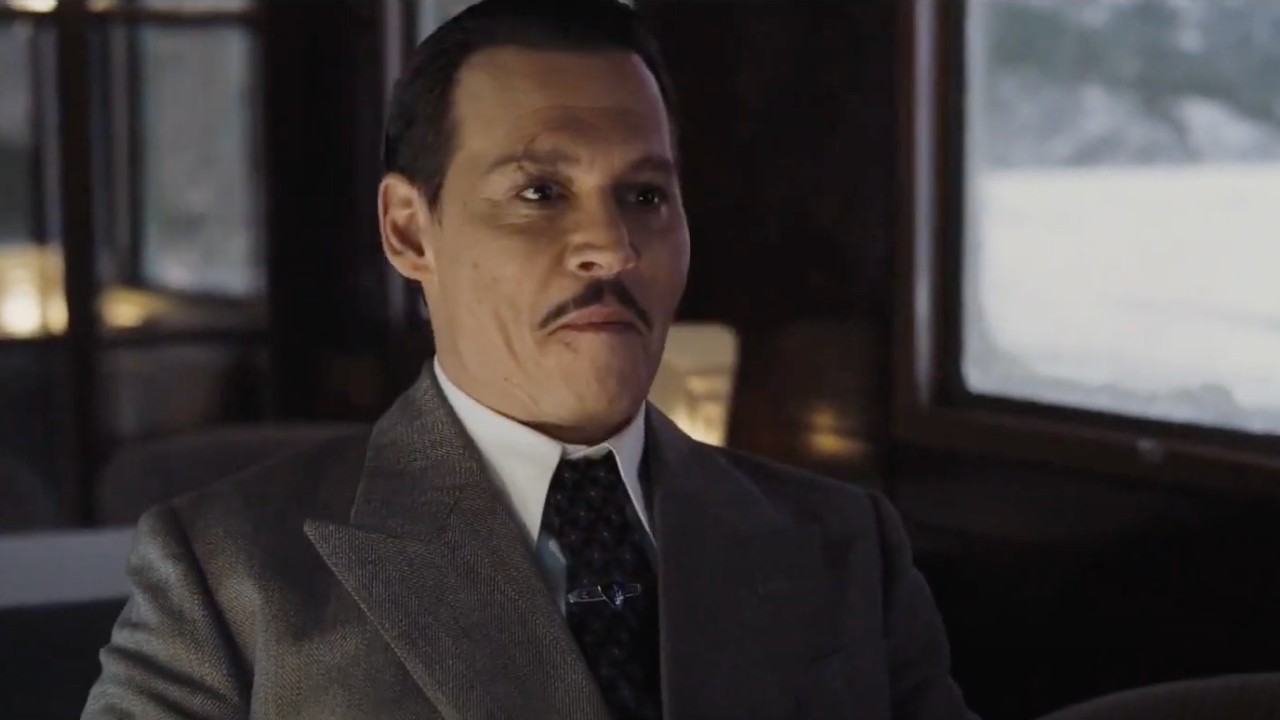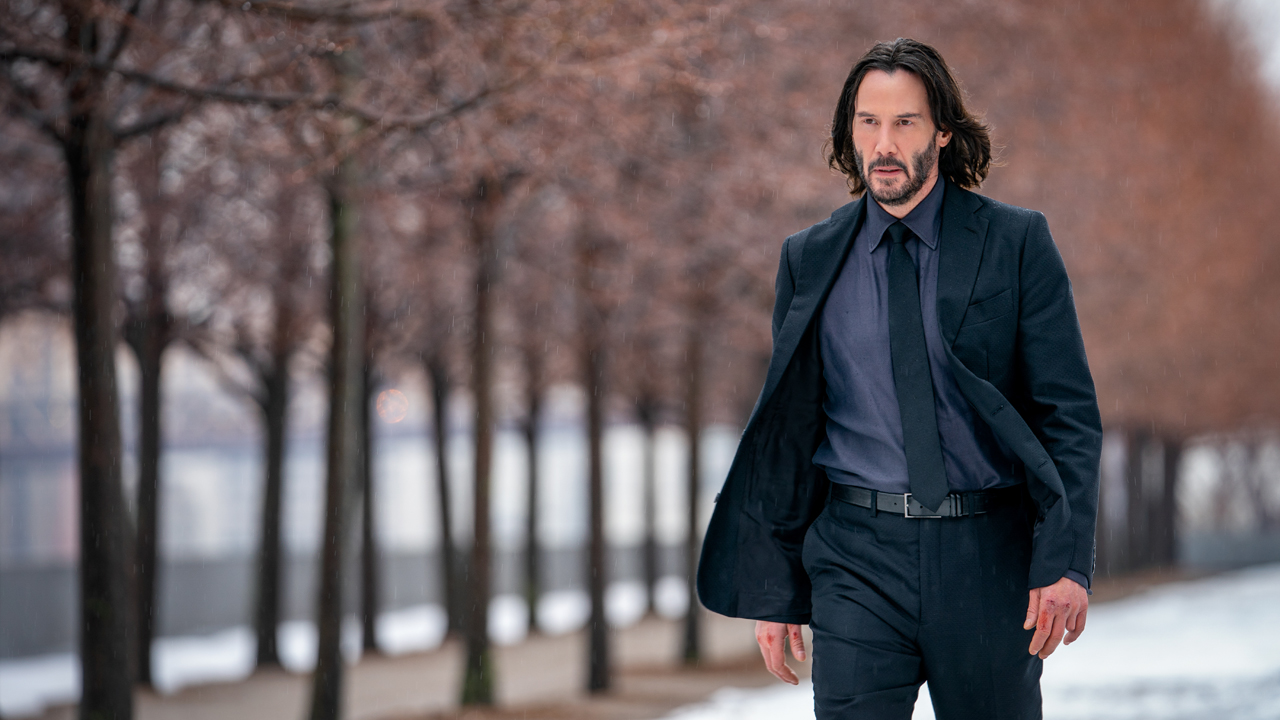How Peacock's Brave New World Approached The Problematic Elements Of The Book
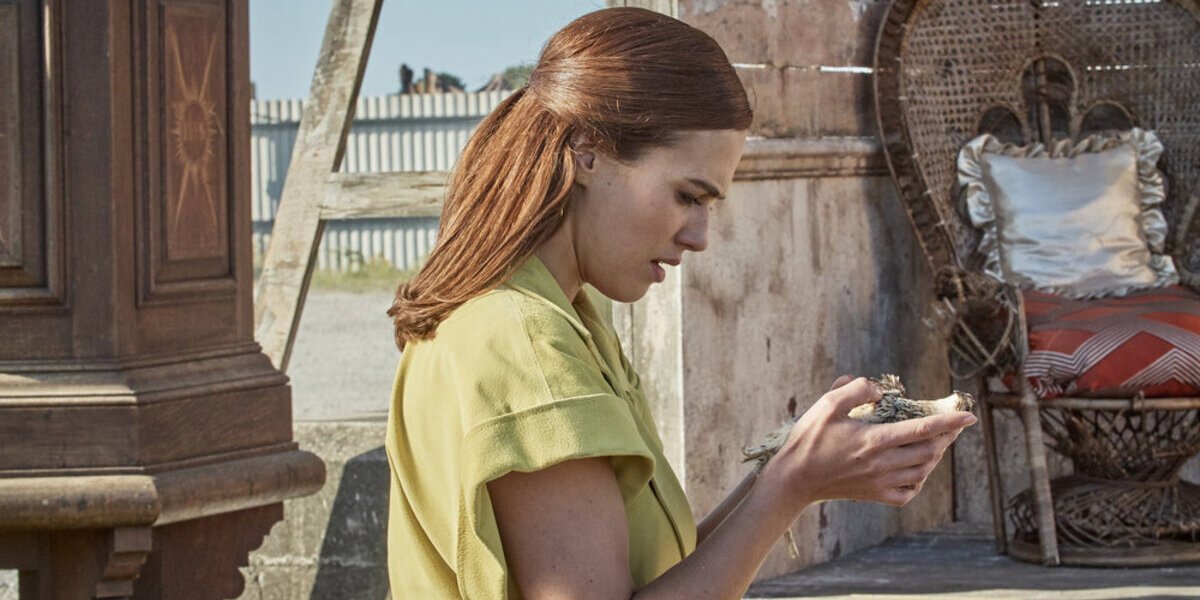
Brave New World launched in July as an ambitious new adaptation of Aldous Huxley's classic novel of the same name, and the Peacock original expanded on the events of the book to craft a series that could easily run for several more seasons. While Huxley's 1932 novel was prescient in many ways, some elements of the book were outdated and even problematic by 2020 standards. Brave New World executive producer Grant Morrison (who also created Syfy's Happy) spoke with CinemaBlend about the Peacock series, and he shared the modern approach to a 1930s novel.
When I asked how he approached some of the more problematic and dated elements from the book and decided what could and couldn't stay the same for the show, Grant Morrison said:
I felt that the ideas, you know, the feelies and the notion of culture that they lived in felt very modern, but as you say, there's a lot of elements that didn't hold water. More than anything, I was kind of upset by the treatment of Lenina in the book. In the book, she suffers a pretty horrible fate for no good reason. And we felt that we wanted to make Lenina the central character in the whole thing, and the whole notion for me was about what can this young woman, who's a Beta Plus but is clearly smarter than she's expected to be, [do].
In the book, Lenina is very much a product of her society in how she embraced promiscuity, communal living, and an overall lack of inhibition, and the result was John violently rejecting her despite his attraction to her. In the Brave New World show, Jessica Brown Findlay's Lenina is a product of her society who nevertheless sees the value in doing things differently, even before meeting John. Grant Morrison went the extra mile to make sure that Peacock's Lenina wouldn't meet the same fate as Aldous Huxley's Lenina.
Lenina of course did meet John, but the Savage Lands of the show were very different from those in the book. In Aldous Huxley's novel, the Savage Reservation is where the last remnants of Native Americans live in New Mexico, and a select few outsiders are allowed to go visit. In Brave New World on Peacock, the Savage Lands are more of a living museum and tourist attraction than anything else. Grant Morrison elaborated on how the Savage Lands impact Lenina's expanded show journey:
What would happen if she was given the chance to remake society? And even though they live in a kind of utopia, we wanted to very much say that for all intents and purposes, this is a utopia, but that's not to say it couldn't get better. And the notion of what Lenina learns in the Savage Lands and brings back then became this idea of, 'Let's put her at the center. Let's see if she can change things, if she is able to absorb from other cultures and from other ideas and to bring them back in a way that no one else in her society has ever done before.' So very much foregrounding her.
Lenina certainly experienced a culture shock once violence erupted in the Savage Lands and people started dying. She kept her head quite well considering her conditioning, whereas Bernard was quick to default back to who he was in New London as soon as they were out of danger. What she experienced with John in the Savage Lands combined with what she was open to learning from him really fueled a lot of the first season, even if the Epsilon uprising is more or less what took New London past the point of no return.
Grant Morrison explained why changing the Savage Reservation to the Savage Lands was important to the show and to the history of the world by that point in Brave New World:
And also the idea, as you say, in the book, the Savage Lands is the description for basically a Zuni Pueblo in New Mexico. And I stayed with friends for a long time in a Zuni Pueblo outside Santa Fe back in the '90s, so I know that it was far from right. The idea then became, well, let's imagine 300 years in the future, all of American society has become savage in the sense that America is the one country that seceded from the world state. So they didn't join the gang, they didn't develop this caste-based system. They clung to culture but 300 years later that culture's quite degraded and people are selling that experience to tourists in the way that a lot of aboriginal and First Nation cultures kind of have to do.
Instead of presenting a Savage Reservation that would have put John and Linda in the middle of a Native American culture that had endured for centuries with little change like in the book, Brave New World the show established that American society such as it more or less is nowadays became the Savage Lands after the world changed but what remained of the United States remained separate.
CINEMABLEND NEWSLETTER
Your Daily Blend of Entertainment News
As a result, John was familiar with death, violence, family, and monogamy without the show fully exploring a Savage Reservation like the one in Aldous Huxley's book. Grant Morrison explained the vision of the dystopian world and America that led to the utopia of New London vs. the Savage Lands:
It was a notion of putting America itself in the position of being the Savage Lands and everything that we kind of take for granted today has, as I say, degraded into almost these rituals and performances, and the real world of the Savage Lands is an America where it costs $3000 to buy a Mars Bar because inflation is so bad, and there's been six presidents in the last five months and the states have divided. Economic and social and environmental collapse. So we've taken everything that's going wrong with our own society today and projecting that into the future and then seeing how that would play against this fabulous, computer-driven caste-system that works like a hive.
So, elements of the book such as the treatment of Lenina and the portrayal of life in the Savage Reservation (as well as John as the "Savage") were updated for a modern ongoing series that fortunately didn't end with anybody hanging themselves or the cycle of soma and everybody belonging to everybody else destined to continue. In fact, with so many major characters surviving and some original characters, such as Joseph Morgan's Epsilon known as CJack60, still in the mix, the stage is seemingly set for Season 2.
For now, the full first season of Brave New World is available for watching and rewatching on Peacock Premium. If you're in the market for more TV options now and in the not-too-distant future, check out our 2020 summer TV premiere schedule and our 2020 fall TV premiere guide.
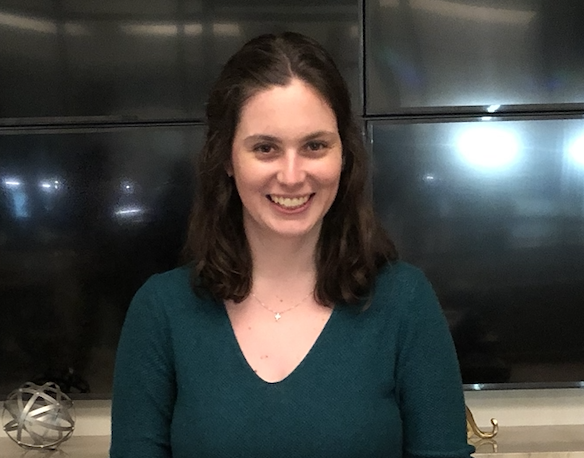
Laura turned a lifelong love of television into a valid reason to write and think about TV on a daily basis. She's not a doctor, lawyer, or detective, but watches a lot of them in primetime. CinemaBlend's resident expert and interviewer for One Chicago, the galaxy far, far away, and a variety of other primetime television. Will not time travel and can cite multiple TV shows to explain why. She does, however, want to believe that she can sneak references to The X-Files into daily conversation (and author bios).
